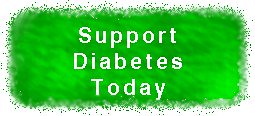People using insulin or insulin secretagogues should be aware of delayed hypoglycemia (low blood glucose) that can occur up to 24 hours after drinking alcohol.
People with type 1 diabetes should be aware of the risk of morning hypoglycemia if alcohol is consumed 2 to 3 hours after the previous evening’s meal.
Alcohol should be limited to 1-2 drinks per day (less than 14 standard drinks/week for men and less than 9 standard drinks/week for women).
People with diabetes should discuss alcohol use with their diabetes healthcare team.
Risks for people with diabetes
Alcohol can:
- affect judgement
- provide extra calories that can make weight loss or weight management a challenge
- increase blood pressure
- contribute to sexual difficulties
- damage the brain and nerves
- increase your triglycerides
- contribute to inflammation of the pancreas
- dehydrate the body which is very dangerous in someone with high blood glucose
- increase the risk of various cancers over time
- increase the risk of personality change such as depression or aggression
- worsen eye disease
- damage your liver over time
BEFORE Drinking Alcohol
- Eat regular meals, take your medication(s), and check your blood glucose levels frequently(keep your blood glucose meter with you).
- Always have a treatment for low blood glucose with you (such as 3 glucose tablets or ¾ cup regular pop or 6 Life Savers®).
- Wherever you are, make sure someone with
- you knows your signs and symptoms of low blood glucose and how to treat it so they can help you.
- Be aware that glucagon, a treatment for low blood glucose, will not work while alcohol is in the body. Because of this, make sure that someone knows to call an ambulance if you pass out.
- Wear diabetes identification such as a MedicAlert® bracelet.
- Eat carbohydrate-rich foods when drinking alcohol. Some ideas are bread, cereal or crackers, or if you are out at a pub or restaurant, fries - or yam fries (a healthier alternative) or a sandwich or burger (bun = carbs). Make sure you dont eat too much though - you dont want to be too high.
- Eat extra carbohydrate-rich foods if you are dancing, playing sports or doing other physical activity.
- Always pour your own drinks. Use less alcohol and stretch your drinks with sugar-free mixes.
- Drink slowly. Make your second drink without alcohol.
- Tell a responsible person that you have been drinking. They should look for low blood glucose symptoms. (eg. )
- Check your blood glucose before going to bed. Eat a carbohydrate snack if your blood glucose is lower than usual.
Set an alarm or have a responsible person wake you up through the night and early morning –
a delayed low blood glucose can occur anytime up to 24 hours after drinking alcohol.
You need to get up on time the next day for any food, medication or insulin you normally take. Missed medication or insulin can lead to high blood glucose, ketones and diabetic ketoacidosis (DKA).
For a list of drinks and their calorie and carbohydrate content click here







No comments:
Post a Comment